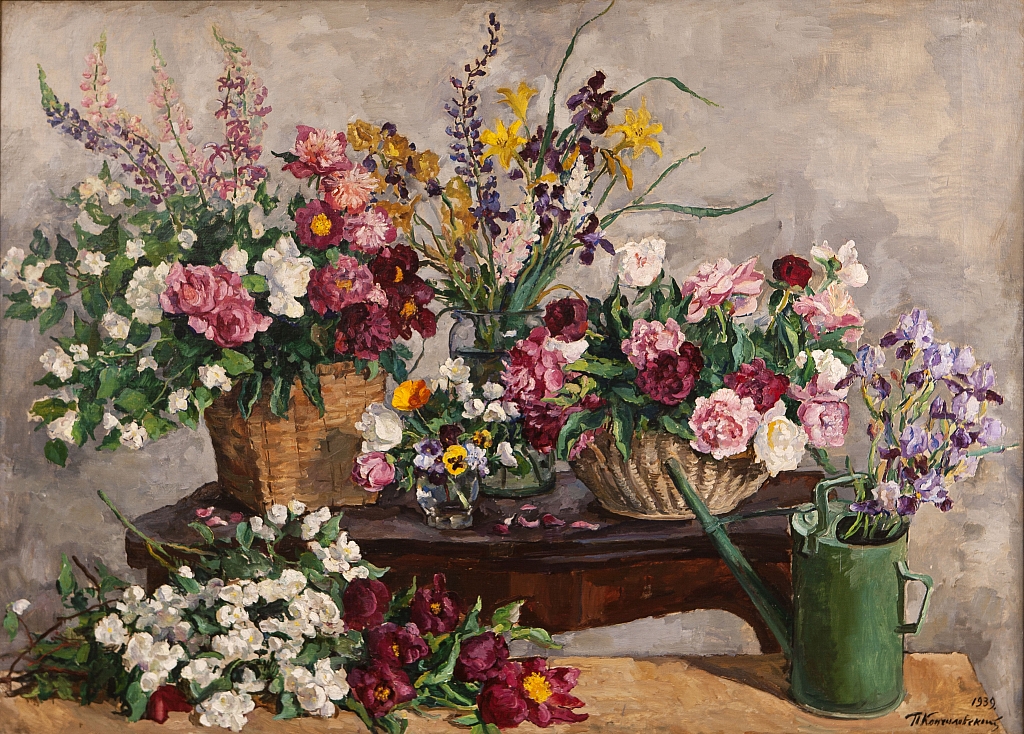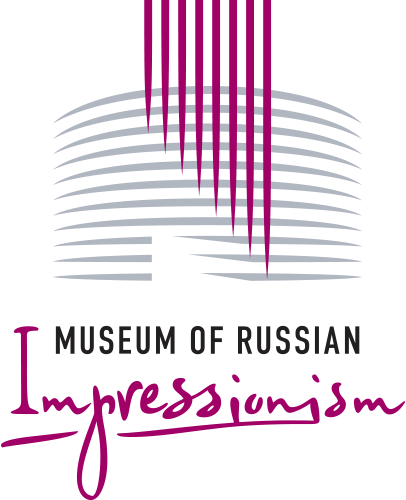
Various Flowers (Still-Life with Flowers and a Watering Can). 1939
Pyotr Konchalovsky
Oil on canvas
165X229
“You cannot paint a flower ‘just like that’, in slapdash strokes - it needs as much study as anything else. Flowers are great teachers for artists, since discerning and comprehending the structure of a rose requires no less effort than deciphering that of a human face. Painting flowers for me is what practicing scales is for a musician: after a couple of hours’ work your brain goes into overdrive and instead of flowers, sounds crop up… It is a massive exercise for a painter.” Konchalovsky spoke of flower still-lifes with expertise and vigour; it was therefore, perhaps, no surprise, that towards the end of his life he was accused of ignoring the everyday life around him, and of only caring for his art. “At the moment I am much taken with painting ‘against the sun’, – he told his friend, the art critic Viktor Nikolsky in the early 1930s, – “I am interested in catching its hurling silver at the leaves, the trees, at everything – a rather cold kind of silver in so many hues… and such gliding light over the foliage.” Konchalovsky settled far from Moscow, in a place called Bugry near the town of Maloyaroslavets, where he tended his garden, made honey, bred pigs and smoked gammon. Following such a traditional way of life, he did not welcome the comforts of civilisation: there was no electricity in the house, only oil lamps, and the radio was always switched off to shut out news of the outside world.



